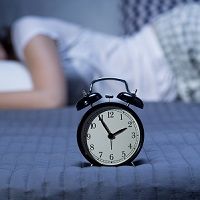Does Sleep Influence Antidepressant Efficacy?
Antidepressant remission rates could be influenced by a precise sleeping schedule, according to findings presented in The Journal of Clinical Psychiatry.

Antidepressant remission rates could be influenced by a precise sleeping schedule, according to findings presented in The Journal of Clinical Psychiatry.
Researchers from the University of Michigan Health System observed 68 adults diagnosed with depression for eight total weeks in order to compare remission rates and time to remission onset for antidepressant medication delivered adjunctively to nightly time in bed restriction of six hours or eight hours for the first two weeks. The researchers noted that individuals with depression can take up to six weeks to respond to medications.
The patients were recruited between September 2009 and December 2012 in an academic medical center, and they received eight weeks of an open label fluoxetine 20 to 40 mg. The patients were randomized into groups based on the amount of sleep they were assigned for the first two weeks: eight hours of time in bed, six hours of time in bed with a two hour bedtime delay, or six hours time in bed with a two-hour advanced rise time.
"It's important to find practical and safe strategies that can enhance our traditional depression therapies, so we decided to evaluate a more modest amount of sleep deprivation that could easily be implemented alongside medication treatment," principal investigator J. Todd Arnedt, PhD, explained in a press release. "Although we predicted the group with restricted time in bed would have a better response, based on previous sleep deprivation research in depression, we actually found the opposite."
While other studies have demonstrated that both total and partial sleep deprivation on a single night influenced mood the following day for about 60% of patients, the researchers for this study learned that the patients with eight hours per night improved in all measures. Those patients were nearly two times more likely than the other two groups to achieve symptom remission after eight weeks of treatment with antidepressants (62% vs. 33%, respectively). The patients with eight hours sleep also responded more quickly to pharmacotreatment.
"Eventually, we'd like to identify combinations of sleep and circadian treatments that are independently effective for depression and that can be used practically and safely in inpatient and outpatient settings," Arnedt concluded.
Related Coverage:
Decision Tool Helps Doctors Talk to Patients about Antidepressants